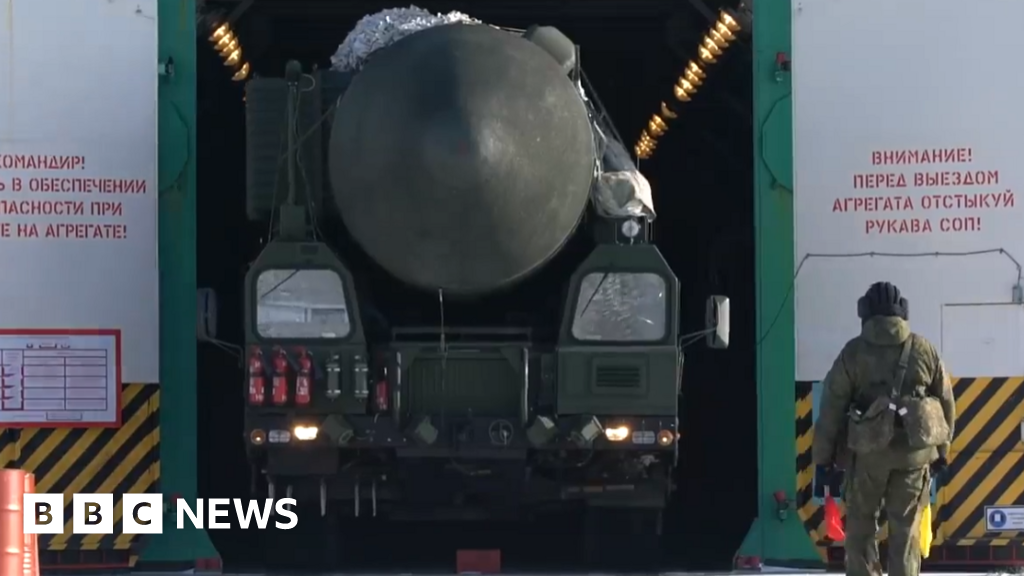Russian officials say the updated doctrine “effectively eliminates” the possibility of its defeat on the battlefield.
But is Russia’s nuclear arsenal fully functional?
Some Western experts have suggested its weapons mostly date from the Soviet era, and might not even work.
The former nuclear forces officer rejected that opinion as a “very simplified view from so-called experts”.
“There might be some old-fashioned types of weapons in some areas, but the country has an enormous nuclear arsenal, a huge amount of warheads, including constant combat patrol on land, sea and air.”
Russia’s nuclear weapons were fully operational and battle-ready, he maintained. “The work to maintain the nuclear weapons is carried out constantly, it never stops even for one minute.”
Shortly after the full-scale war began, Anton said he was given what he describes as a “criminal order” – to hold lectures with his troops using very specific written guidelines.
“They said that Ukrainian civilians are combatants and should be destroyed!” he exclaims. “That’s a red line for me – it’s a war crime. I said I won’t spread this propaganda.”
Senior officers reprimanded Anton by transferring him to a regular assault brigade in another part of the country. He was told he would be sent to war.
These units are often sent in to battle as the “first wave” and a number of Russian deserters have told the BBC that “troublemakers” who object to the war have been used as “cannon fodder”.
The Russian embassy in London did not respond to a request for comment.
Before he could be sent to the front line, Anton signed a statement refusing to take part in the war and a criminal case was opened against him. He showed us documents confirming his transfer to the assault brigade and details of the criminal case.
He then decided to flee the country with the help of a volunteer organisation for deserters.
“If I had run away from the nuclear forces base, then the local FSB Security Service would’ve reacted decisively and I probably wouldn’t have been able to leave the country,” he said.
But he believes that, because he had been transferred to an ordinary assault brigade, the system of top-level security clearance failed.
Anton said he wanted the world to know that many Russian soldiers were against the war.
The volunteer organisation that helps deserters, “Idite Lesom” [‘Go by the Forest’, in English, or ‘Get Lost’] has told the BBC that the number of deserters seeking help has risen to 350 a month.
The risks to those fleeing are growing, too. At least one deserter has been killed after fleeing abroad, and there have been several cases of men being forcibly returned to Russia and put on trial.
Although Anton has left Russia, he says security services are still looking for him there: “I take precautions here, I work off the books and I don’t show up in any official systems.”
He says he has stopped speaking to his friends at the nuclear base because he could put them in danger: “They must take lie-detector tests, and any contact with me could lead to a criminal case.”
But he is under no illusion about the risk he is himself in by helping other soldiers to flee.
“I understand the more I do that, the higher the chances they could try and kill me.”

